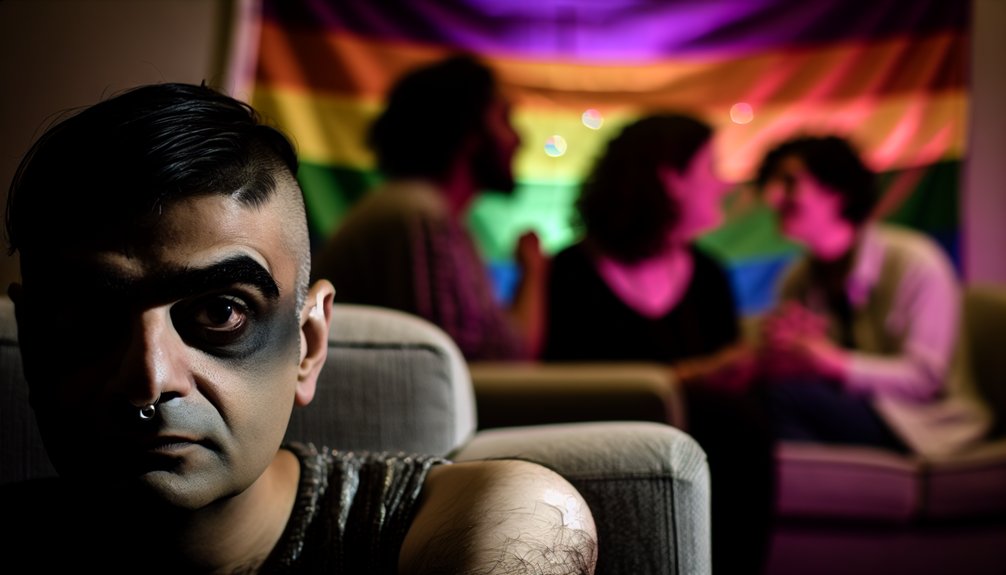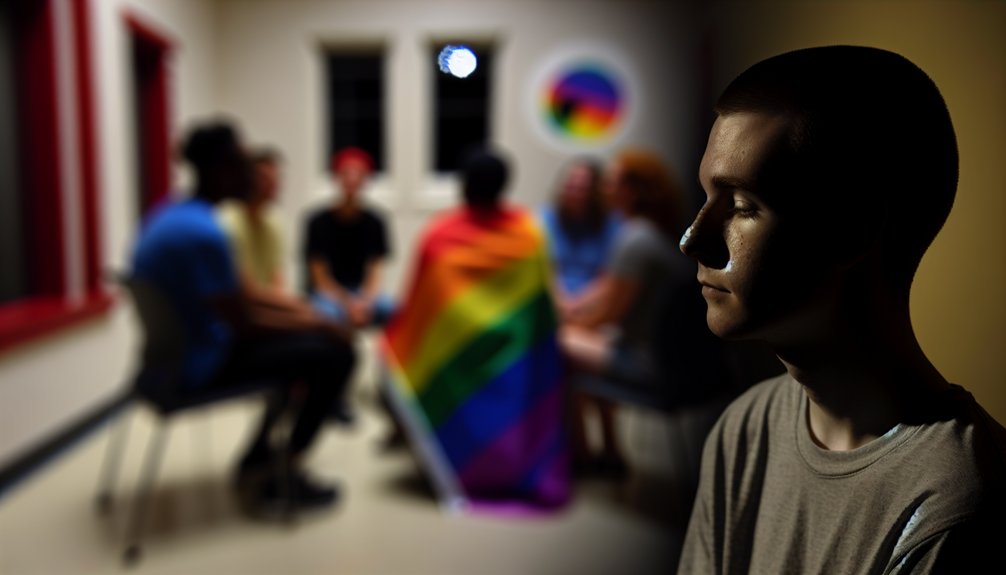When Safe Spaces Harm: The Lasting Damage of Unintentional Misgendering


Table of Contents
ToggleImagine stepping into what should be a sanctuary, only to find the walls echoing with misunderstanding. You might think a safe space is a haven, but even unintentional missteps like misgendering can sting deeply. These errors can leave individuals feeling unseen and disconnected. So, how can you guarantee that safe spaces truly live up to their promise of acceptance and support? Investigate ways to bridge this gap and foster genuine inclusion.
When you think about safe spaces, they’re meant to be places where everyone feels accepted and free from judgment or discrimination. These environments should support diversity and foster a sense of security for all individuals, including those with diverse gender identities. In a safe space, you can express yourself without fear of being misunderstood or misgendered. It’s vital for these spaces to respect and recognize each person’s identity, as this acknowledgment plays a significant role in emotional well-being. Safe spaces should actively promote understanding and dialogue, ensuring that everyone feels seen and heard. When safe spaces fail to uphold this, the impact can be profound, leading to feelings of invisibility and discomfort rather than the intended support and acceptance.

Although you might not intend to, misgendering someone can have a serious psychological impact. It can make them feel invisible and misunderstood, as if their true identity doesn’t matter. This can lead to feelings of sadness, anxiety, and frustration. When someone’s gender is misrecognized, it can diminish their self-esteem and sense of belonging.
You might think a small mistake isn’t a big deal, but for someone who’s often misgendered, it can be an indication that their identity isn’t acknowledged. This experience can be isolating, making them question their place in social settings. It’s crucial to keep in mind that using the correct pronouns and names is more than politeness; it’s about respecting and affirming their identity.

How do you navigate feelings of social dysphoria in spaces that are meant to be safe? It can feel overwhelming when you’re unexpectedly misgendered. To cope, focus on self-awareness and communication. You might express your true identity confidently, gently correct others, or seek allies who understand your experience.
Here’s a simple guide to help you:
| Situation | Action | Outcome |
|---|---|---|
| Misgendered | Calm correction | Awareness raised |
| Unrecognized | Share pronouns | Improved understanding |
| Feeling isolated | Connect with allies | Support system strengthened |
| Overwhelmed | Take a break | Regained composure |
| Misunderstood | Open dialogue | Increased empathy |
Recognizing the significance of safe environments highlights the next step: understanding visibility’s impact on well-being. When you’re visible, others see and acknowledge your true identity, which enhances self-confidence and personal validation. It helps you feel understood and less alone, contributing to your emotional health. Visibility also strengthens community ties. When you observe others like you, it creates a sense of belonging and shared experience. This connection is essential for mutual support and understanding. However, lack of visibility can lead to feelings of isolation and invisibility, affecting mental well-being. By valuing and promoting visibility, you contribute to a supportive community where everyone feels seen, respected, and valued. It’s vital for both personal happiness and community strength.
Creating more inclusive safe spaces starts with understanding the unique needs of the individuals who use them. As a supporter or ally, you can take steps to guarantee everyone feels respected and seen. Begin by being open to learning and making adjustments as needed. Here are some strategies:
Misgendering can strain relationships within LGBTQ+ communities by creating feelings of invalidation and distrust. When you unintentionally misgender someone, it might signal a lack of understanding or awareness, making them feel unseen. This can lead to emotional distress and hinder open communication. Intentional misgendering can be more easily dismissed as malicious, but unintentional acts can damage bonds if not addressed. Recognizing and correcting these mistakes fosters a more supportive environment.
You might think safe spaces always promote inclusivity, but they can sometimes unintentionally uphold gender stereotypes. When a space fails to actively challenge gender norms, it may reinforce traditional roles and expectations. You should consider how language, activities, and interactions within these spaces either support or dismantle stereotypes. It’s vital to create an environment that encourages everyone to express their true identities without fear of judgment or misinterpretation.
As an ally, you play an essential role in addressing unintentional misgendering by actively listening and learning from trans and non-binary experiences. It’s significant to correct yourself and others when mistakes happen and to use inclusive language. Create supportive environments by asking for and using correct pronouns. Your actions can help reduce emotional distress and promote understanding, ensuring everyone feels respected and recognized for their true identity.
You can utilize technology to reduce misgendering by implementing tools like gender identity recognition software in communication platforms. These tools help guarantee that users’ preferred pronouns appear correctly in emails, chat, and social media. Voice recognition systems can also adapt to respect users’ identities. By leveraging these technological solutions, you can create a more inclusive environment, reducing the frequency of unintentional misgendering and enhancing emotional well-being for everyone involved.
You might notice that cultural differences greatly influence how misgendering is perceived. In some cultures, gender roles are strictly defined, and misgendering can be seen as highly offensive. In others, there’s more flexibility in gender expression, potentially leading to a more understanding response. Recognizing these differences is essential in addressing misgendering effectively. Being aware of cultural contexts can help you navigate conversations and create a more inclusive environment for everyone.
In a twist of coincidence, the very places meant to shield you can inadvertently wound you. Unintentional misgendering in safe spaces doesn’t just bruise feelings; it undermines your sense of self and belonging. It’s essential to recognize the psychological impact and work towards solutions that promote visibility and inclusivity. By being mindful and proactive, you can help transform these spaces into ones that truly support and uplift everyone, aligning with their original purpose.
 Featured PostsJanuary 30, 2026Threat Assessment: 47 Organizations Launch National Initiative Against LGBTQ+ Marital Equality
Featured PostsJanuary 30, 2026Threat Assessment: 47 Organizations Launch National Initiative Against LGBTQ+ Marital Equality Featured PostsJanuary 30, 2026My Wife Doesn’t Know I’m Trans
Featured PostsJanuary 30, 2026My Wife Doesn’t Know I’m Trans News and AdvocacyJanuary 30, 2026Opinion/Analytical: The Minneapolis Arrest of Don Lemon: A Dangerous Precedent for Modern Journalism
News and AdvocacyJanuary 30, 2026Opinion/Analytical: The Minneapolis Arrest of Don Lemon: A Dangerous Precedent for Modern Journalism Activism and ChangeJanuary 29, 2026Strategic Shifts: Analyzing the Latest GOP Policy Proposals Regarding LGBTQ+ Households
Activism and ChangeJanuary 29, 2026Strategic Shifts: Analyzing the Latest GOP Policy Proposals Regarding LGBTQ+ Households